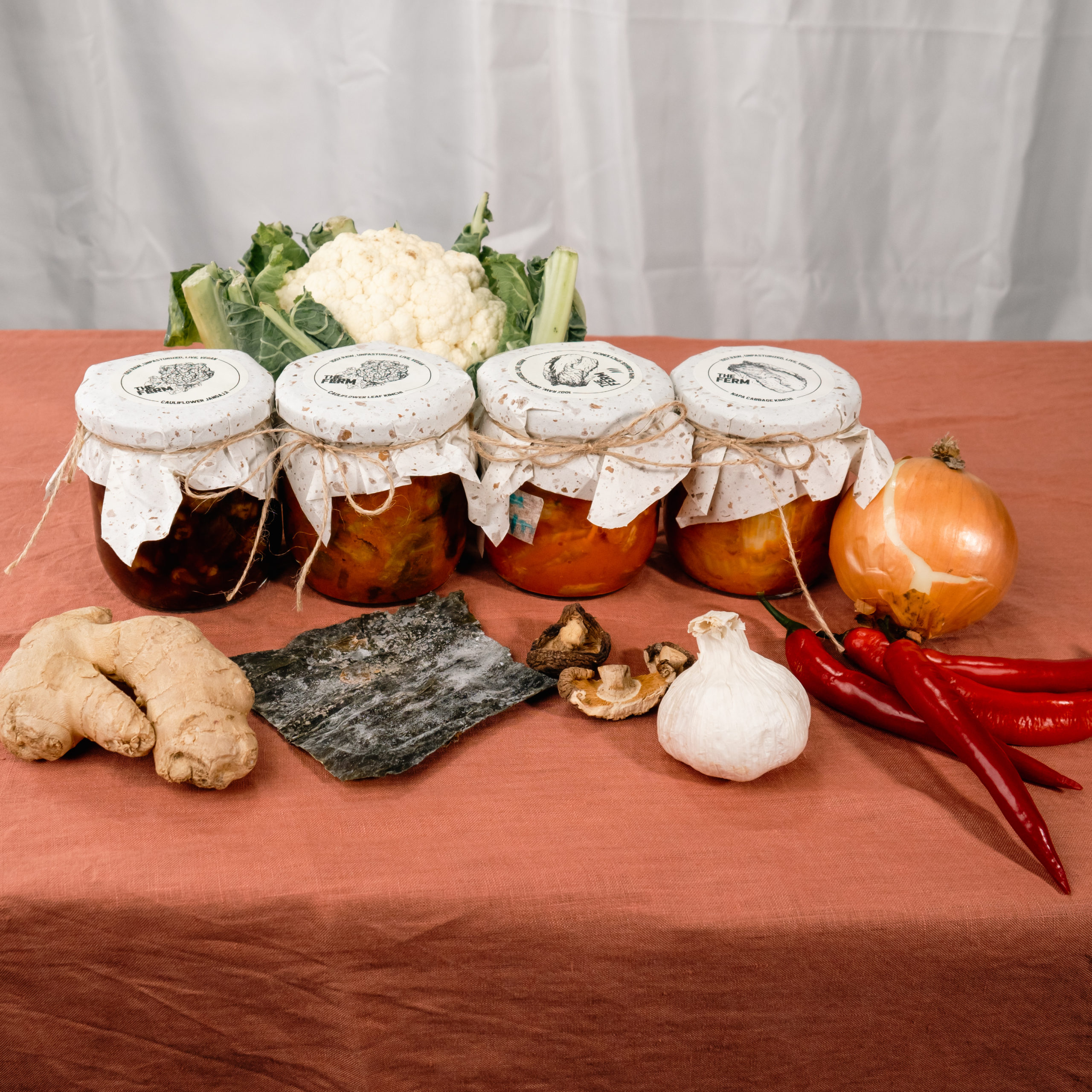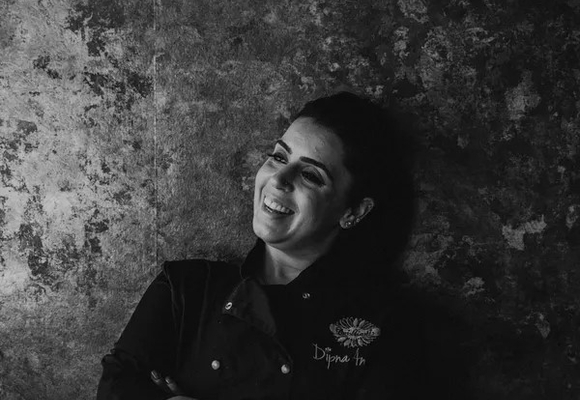Overview
Who is this for?
Chefs, amateur cooks, menu planners / creators and anyone interested in increasing their recipe bank!
Why should I take part?
You will spend time with like minded colleagues from the industry, using authentic recipes under the guidance of chefs who have authentic knowledge of the ingredients and menu items. After cooking your menu, you will consume the food you have created and take away the recipes from the day to take back to your institution.
Rebecca Ghim at the Made in Hackney Community Cookery School
Rebecca, a South Korean chef and fermentation expert, partners with councils and communities to tackle food insecurity and child obesity. She champions low-waste living, upcycles food waste into delicious dishes, and educates on sustainable food through Dewaste Your Taste on Instagram. Her vegan raw unpasteurized kimchi brand, The Ferm, is available at London's farmers' markets.
"I'm from Gwangju, South Korea, a town known for good food and is the home t o the World Institute of Kimchi. I've participated in Kimjang, the practice of the whole neighborhood coming together to make kilos of kimchi since I was little. It is a collective ritual that I shared with friends as I studied abroad, now through partnerships with restaurateurs and farmers.
o the World Institute of Kimchi. I've participated in Kimjang, the practice of the whole neighborhood coming together to make kilos of kimchi since I was little. It is a collective ritual that I shared with friends as I studied abroad, now through partnerships with restaurateurs and farmers.
Through my MA in Design for Social Innovation and Sustainable Futures, I researched food waste, food insecurity, and food sovereignty. After writing my dissertation on biases within food systems, I decided to reclaim my heritage and take up space in the UK kimchi market. I researched Korean food anthropology, archived preservation methods, and low-waste generational insights, and experimented on how these can be adopted in the UK.
My kimchi brand, The Ferm, is the medium of expansion of my low-carbon lifestyle and activism by tackling systematic food waste on production and manufacturing levels. I hope to exemplify the joys of sharing and circular economy as we innovate our way out of the climate crisis."
In the class we will offer chefs the opportunity to taste -
Kimchi is a traditional Korean dish made from fermented vegetables, most commonly napa cabbage and Korean radishes, with a variety of seasonings such as red chili pepper flakes, garlic, ginger, and often with salted seafood (jeotgal). The fermentation process, which can range from a few days to several weeks. Kimchi is a staple in Korean cuisine, often served as a side dish but also used as an ingredient in a wide array of dishes, including soups, stews, and fried rice.

Learn how to make -
Kimchi stew, or kimchi jjigae, is a popular Korean dish made primarily with kimchi and other ingredients such as tofu, onions, garlic, and green onions. This hearty and flavorful stew is known for its spicy, tangy, and umami-rich taste, derived mainly from well-fermented kimchi.
or
Japchae is a classic Korean dish made from stir-fried glass noodles (dangmyeon) and a variety of vegetables, often including carrots, spinach, mushrooms, onions, and bell peppers. The dish typically features beef, but we will make a vegan version. Japchae is usually served as a side dish (banchan) but can also be enjoyed as a main course. This dish is a staple in Korean cuisine and is particularly popular during festive occasions and celebrations.
Bibimbap is a traditional Korean dish that translates to "mixed rice." It consists of a bowl of warm white rice topped with a variety of vegetables (often sautéed and seasoned), sliced meat (usually beef), a fried egg, and gochujang (Korean red chili paste). We will make a vegan version with tofu. Sometimes, soy sauce and doenjang (fermented soybean paste) are also used. Bibimbap can be served in a regular bowl or in a hot stone bowl (dolsot bibimbap), which crisps the rice at the bottom.
How will it help me?
During the event, you will...
- Get hands-on demonstration of recipes
- Understand Korean cuisine and traditional menu items
- Develop your skills with an authentic culinary expert
- Engage with like-minded colleagues and enjoy the fruits of your labour
Following the event, you will...
- Take away the scaleable recipes
- Be able to replicate the menu at your institution (as well as at home!)
What’s included?
- All ingredients and utensils required for the session
- Lunch and refreshments (from the recipe you produce)
- A cope of the recipes and ingredients list
What’s not included?
- Travel to and from the development day
The Made in Hackney Cookery School can be reached from central London via overground and underground stations. Detailed instructions on how to find the school are here
Itinerary:
09:30 Introductions and theory
10:00 Practical
12:30 Lunch
13:30 End of session
Additional classes will be available for more global food trends including, West African, Indian and Nigerian over the 24/25 Academic year. Full members can select the option of £100 and this will give access to 3 classes from the series.
Pricing
Location
128 Clapton Common
London
E5 9AA



